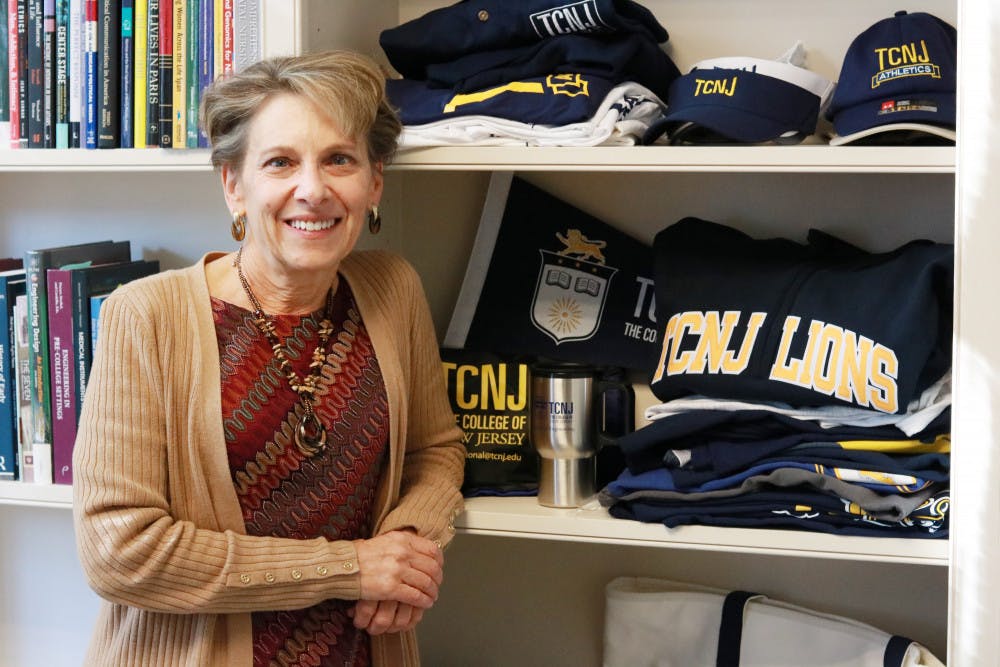By Michelle Lampariello
Editor-In-Chief
College President Kathryn Foster sat down with The Signal on Friday, Oct. 19 to share her goals for her first year as president. With the College’s future at the forefront of her mind, Foster divided her initiatives for this academic year into four subcategories: fundraising, campus conditions, external conditions and opportunity.
Foster feels it is imperative that leaders at the College consider how the decisions they make today will affect the school three, five or even 10 years later. Her primary goal is to set up the campus to be successful through a continuous cycle of improvement and to help the College continue thriving in the future. Her goal of maintaining the College as a place of excellence goes hand in hand with her efforts to fortify the school’s reputation as a high-quality institution.
While she is still “meeting and greeting and listening and learning,” Foster is quickly becoming acclimated to life as the College’s president. She sees fundraising as the fuel that keeps the College’s engine running and dedicates a lot of her time to finding new sources of revenue.
Under the umbrella of internal campus conditions, Foster keeps her eye on how the College is performing according to its mission and values. She is also concerned about the well-being and satisfaction of students, faculty and staff members.
Program quality is a high priority for Foster, who hopes that programs students participate in during their time at the College will prepare them well for post-graduate success. The maintenance of the College’s buildings and facilities are also important to Foster, who is concerned about the presence of mold in Townhouses South this semester.

“Let me be very clear — it is not acceptable to have unhealthy spaces where students are living, and that’s why we’re trying to take care of it and figure out what it is,” she said. “If it is the kind of thing that’s a recurring problem, then we’re going to have to go to a much more extreme solution — either people can’t be living in those spaces, or those buildings are no longer going to be habitable.”
Foster encourages the College’s administration to ask questions about how the school can better meet the needs and pursue the interests of students. She pays close attention to student demand and is willing to take suggestions from both prospective and current students.
The College does not exist in a bubble, and Foster emphasizes the significance of the school’s interactions with the outside world.
“What’s the picture and the profile not only of our student body and our faculty and staff, but what is the world doing? How can we be caring about where New Jersey is at, where the region is at, where the nation is at? What about international students? I’m really trying to keep my eye on the changing demographics,” she said.
The expectations for institutions of higher education are important to Foster, who is eager to rise to the challenge of what is being asked of her and the College by the government, students and their families and nonprofit agencies.
She understands that employers and graduate schools also operate with expectations, and hopes to provide students at the College with a high-quality education that will allow them to meet and exceed these expectations.
Foster recognizes that her “meet and greets,” during which she engages with the campus community, are her chance to bring the dreams of students, faculty and staff to fruition. She feels that listening to and learning about the aspirations of academic departments, student organizations and individual students, staff and faculty members is a valuable step toward realizing their goals.
“You can do this at an individual level or a unit level,” she said. “And when you do that, you begin learning about strengths that you can build on, opportunities that might be out there, new partnerships that you might be able to develop, connections that you might be able to make.”
She also sees the potential renovation several building on campus as opportunities to grow as a College — particularly Forcina Hall and Roscoe West Hall.
“This campus has done a tremendous amount of new building,” she said. “There might be some new building in our future — no campus stands still — we’re always looking for opportunities that way… but once we’ve made an investment in an area, we want to make sure we’re keeping it up.”
Foster used an analogy of a car to explain how building new may be necessary when the investment makes sense.
“Do you keep rebuilding the engine to try to get another six months out of it before something else breaks, or do you at some point say ‘I’m gonna mount that car on the wall — that’s my beautiful car, I have great memories of that car, but I’m going to go get another kind of car,” she said. “And that happens with buildings too. At some point you say ‘We’re going to fix it. It’s a great building, it’s in a great location, we really want to do it.’ And then at other times you try to be real with yourself and say ‘Is this an old car?’”
Foster explained that while renovation may be cheaper, the College would not likely renovate a building that has become obsolete due to inferior heating systems, windows, air conditioning and ventilation, or one that was built with “the various old materials we used that are no longer legal.”
During her first year as president, Foster is working to assess the current status of the College with respect to each of her goals before crafting a strategy to reach them.







